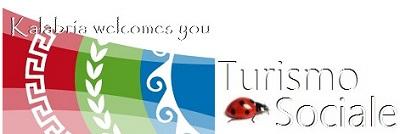Locri
| |
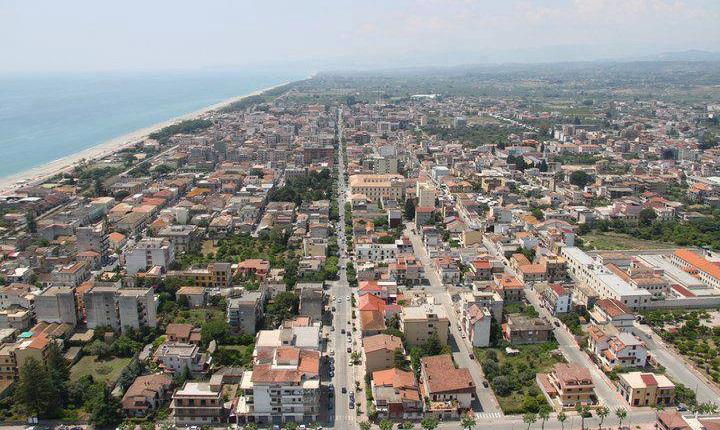 |
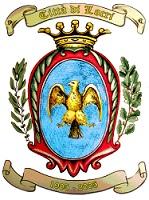 Founded in the 8th century BC, Locri is one of the most important places of interest for tourists visiting Calabria, the popular resort is located on the Ionian Sea just a few km north of ancient Locri Epizephyrii, founded by Greek settlers from Locride. Founded in the 8th century BC, Locri is one of the most important places of interest for tourists visiting Calabria, the popular resort is located on the Ionian Sea just a few km north of ancient Locri Epizephyrii, founded by Greek settlers from Locride.
It was one of richest colonies of the ancient Greek settlement, but during the Saracen’s incursions the place was abandoned and the inhabitants moved in the hinterland where Gerace is now located.
Only in the year 1800 the population occupied again the coastal zone after the end of the enemies incursions, and the construction of the railway.
The territory was then called Gerace Marina and gradually expanded even more thanks to the formation of important administrative and business structures and the beginning of industrial and artisans activities, making it become a self-governing hall in 1905, and changed its name into Locri (1934). |
Mi affaccio alla finestra e vedo il mare
(I stand at the window and see the sea). |
| The Ionian Sea - Il Mare Jonio |
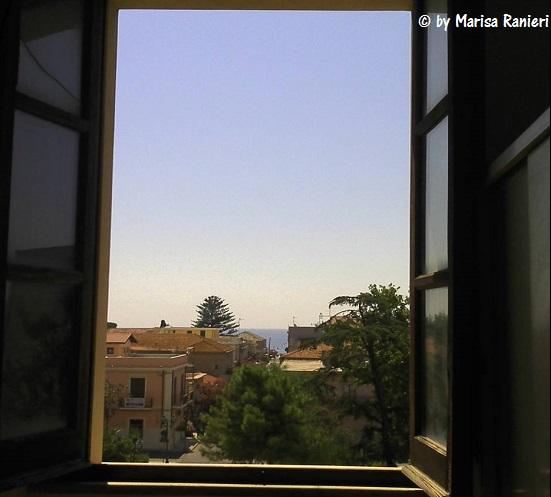 |
| Its name goes back to the Ionian Greek myth hero, a descendant of Poseidon the god of the sea, the son of Durazzo and grandson of Epidamnos. |
| He was accidentally killed by Heracles, and to perpetuate his memory and that of his ancestors, the ancients gave it its name, "Ionian Sea", the stretch of sea that separates Greece from Italy, that of "Durres" at the port site on the west coast of the Balkan Peninsula (the old "Illyria"), and that of "Epidamnos" then called "Dyrrachium" by the Romans. |
| It is a clear deep sea lapping against a wide beach of fine white sand in its upper-mids and pebbles washed down from the surrounding mountains, polished by the time. |
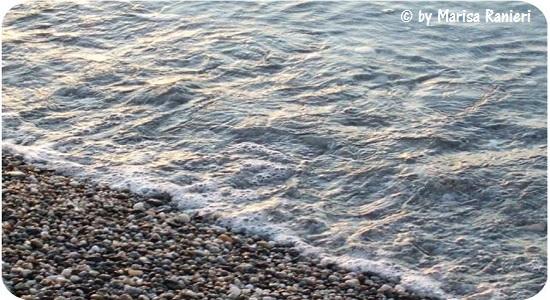 |
| Illuminated by golden sunlight at dawn it changes color depending on the time of day and the succession of the seasons, offering an amazing sight. |
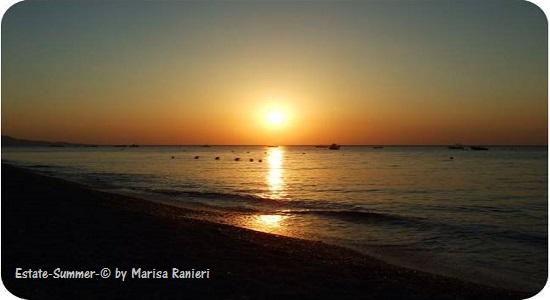 |
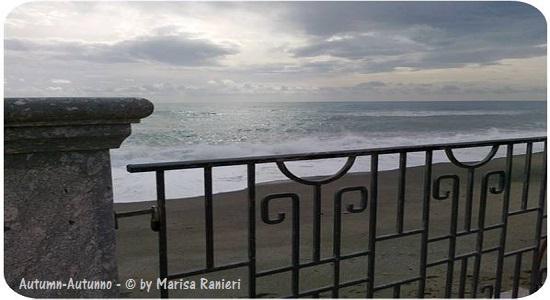 |
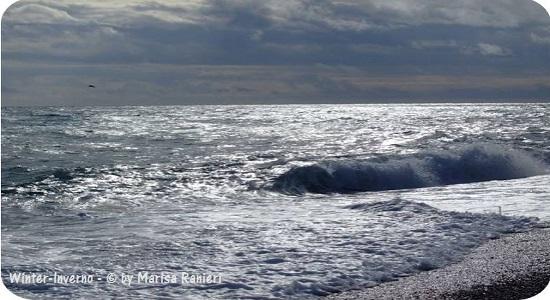 |
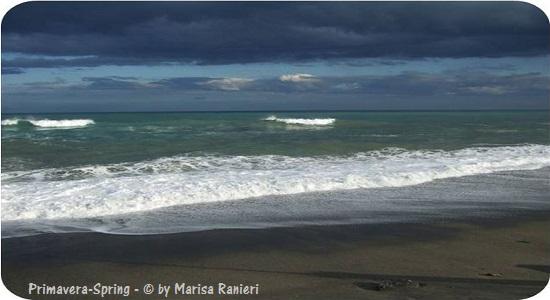 |
| Today the area, besides being an important archeological centre, it is also one of the most active and modern centers of the Ionian Coast, and a crowded seaside resort, which provides good camping areas, villages and tourist facilities. |
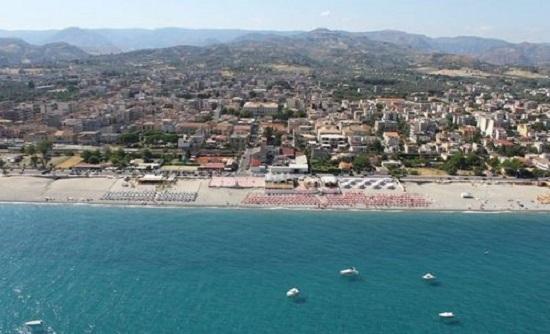 |
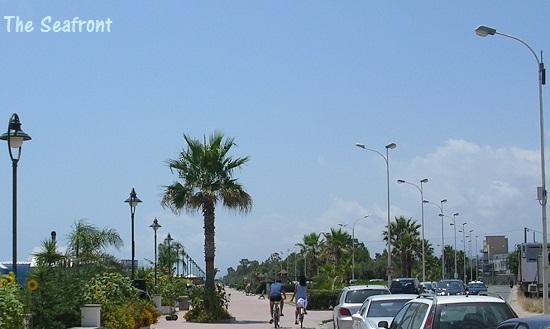 |
Main sights - Along the Ionian coast you can really breathe the air of Magna Grecia, the Antiquarian and the archeological site are the highest expression of the Greek civilization in Calabria.
The area is not rich in structures since most of the city is still waiting to be brought to light. Visible are few ruins of the Temple, the Theater, the Walls and the craftsmen's district (Centocamere).
Sadly, many Italians do not know the existence of this archeological site, which, as evidence of Greek presence, can be compared to the Valley of Temples in Agrigento. |
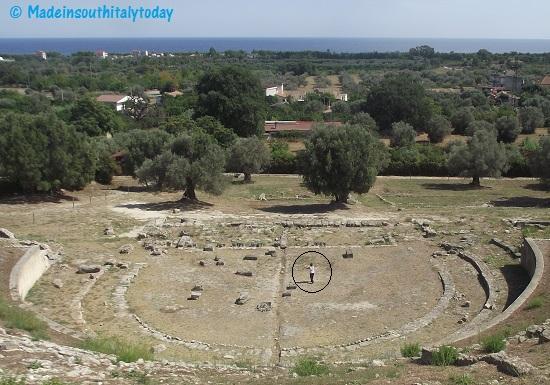 |
| However, I invite you to visit these places that still reflect the distant echoes of the story of the men and women whose culture did flourished here, a culture in many ways unique and extraordinary, and of which the millennia have not been able to erase the memory. |
|
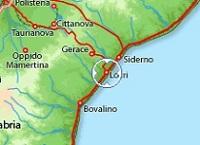 |
| Notable people |
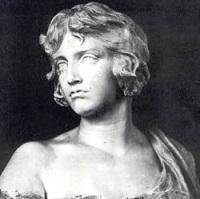 |
Nossis was an ancient Greek woman epigrammist and poet, c. 300 BCE, who lived in southern Italy, at Locri.
Her epigrams were inspired by Sappho, whom she claims to rival.
Twelve epigrams of hers (one of which is perhaps spurious) survive in the Greek Anthology.
Meleager of Gadara, in his Garland, includes her among the most distinguished Greek singers.
Antipater of Thessalonica ranks her among the nine poets who deserved the honor to compete with the Muses. |
Timaeus of Locri was a Greek Pythagorean philosopher living ca. 420–380 BCE.
He features in Plato's Timaeus, where he is said to come from Locri, thus of Locrian origin.
He also appears as one of the speakers in Plato's Critias.
He is credited with the lost work On the Soul of the Universe, although some historians believe this may be an abridgement of Plato's dialogue of Timaeus. |
Philistion of Locri was a physician and writer on medicine who lived in the 4th century BC. A native of Locri but was also referred to as "the Sicilian.
Some ancient writers attributed to Philistion the treatise De Salubri Victus Ratione, and also the De Victus Ratione, both of which form part of the Hippocratic collection.
By some persons he was considered one of the founders of the Empiric school.
He wrote a work on materia medica, and on Cookery, and is several times quoted by Pliny, and Galen. Oribasius attributes to him the invention of a machine for restoring dislocations of the humerus. |
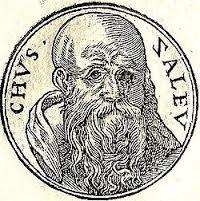 |
Zaleucus was the Greek lawgiver of Epizephyrian Locri, said to have devised the first written Greek law code, the Locrian Code.
According to legends, he punished adultery with the forfeiture of sight.
When his own son was condemned of this, he refused to exonerate him, instead submitting to the loss of one of his own eyes instead of exacting the full penalty of the culprit.
Anyone who proposed a new law, or the alteration of one already existing, had to appear before the Citizen's Council with a rope round his neck.
If the Council voted against the proposal the proposer was immediately strangled. |
| Curiousity |
Locri is a hotbed of the 'Ndrangheta', which is known to be a Calabrian criminal organization, home to several clans.
The town made headlines worldwide when the Vice President of the Regional Assembly of Calabria, Francesco Fortugno, was gunned down with five bullets in front of dozens of bystanders as he cast his vote at the primary elections on October 16, 2005.
In protest, students spontaneously took to the streets the day after Fortugno's killing.
One banner read, "E adesso ammazzateci tutti" (And Now Kill Us All), and many carried white sheets as a symbol of protest against the omertà, or the law of silence, that protects the mafia.
The killing triggered the birth of the Ammazzateci tutti movement against the 'Ndrangheta.
The movement is also known as "Ragazzi di Locri" (Kids from Locri). The funeral of Fortugno on October 19, 2005, was attended by 8,000 people |
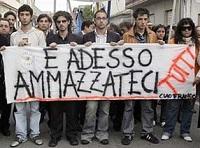 |
"Ammazzateci tutti is a message that expresses both hope and challenge to the 'Ndrangheta, saying 'See if you have enough lead to kill us all,' .
"It's also a challenge to normal people to rebel against the 'Ndrangheta." |
|
|
| |
|
|
| |

|



 Founded in the 8th century BC, Locri is one of the most important places of interest for tourists visiting Calabria, the popular resort is located on the Ionian Sea just a few km north of ancient Locri Epizephyrii, founded by Greek settlers from Locride.
Founded in the 8th century BC, Locri is one of the most important places of interest for tourists visiting Calabria, the popular resort is located on the Ionian Sea just a few km north of ancient Locri Epizephyrii, founded by Greek settlers from Locride.












